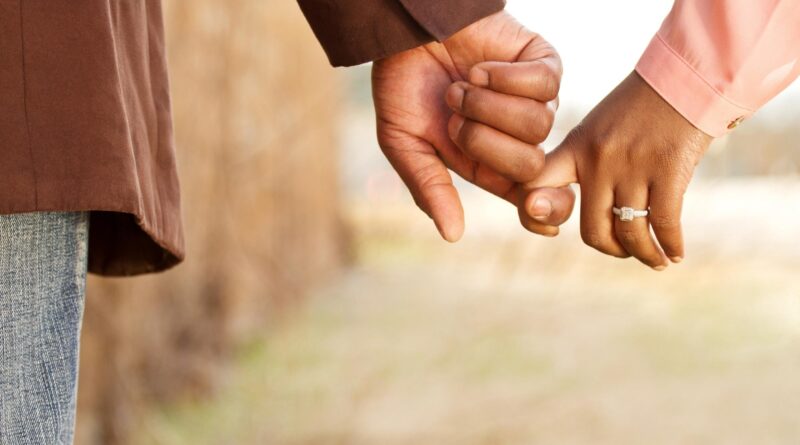Are You In a Codependent Relationship?
Men and women often stay in a co-dependent relationships as a result of being programmed with dysfunctional beliefs about how healthy relationships should be conducted.
Sadly, often they have not observed healthy relationship models during their formative years and subconsciously repeat similar patterns of behavior.
In other cases both partners believe the other holds the key to their happiness although the relationship is stormy, unpredictable and sometimes abusive.
Each partner may deeply believe they need another person to feel good about themselves with the idea of being single and alone considered to be a very frightening prospect.
Co-dependents can be dissatisfied within a relationship but often fear the consequences of trying to change the status quo or leaving.
Within a healthy Interdependent relationship each partner considers the other as being equal which is the exact opposite of how a Co-dependent relationship functions.
Within healthy interdependent relationships each partner:
• Communicates clearly
• Expresses feelings honestly
• Asserts their needs
• Fairly negotiates relationship agreements
• Maintains healthy boundaries
• Commits to the others’ personal growth and well-being
• Has a healthy sense of who they are as individuals
• Is aware of their personal values and goals
• Understands their core relationship needs
There is mutual respect and the understanding either partner could end the relationship without any loss of identity or sense of self being severely compromised. Those with co-dependency tendencies tend to be focused on the needs of their partner lacking the ability to make decisions, feel empowered and excessively comply with their partner ideas or wishes. T
The issues of a co-dependent can often be very contradictory; without a relationship they feel incomplete and empty but when they’re involved there is a fear rejection and abandonment or they can experience feelings of deep anger.
Low self-esteem issues are frequently at the root of this type of mindset which leads a person to believe she (or he) does not deserve to be truly loved for who they truly are but instead have to ‘work’’ to earn any love.
Frequently their relationships end up with their partner:
• Rejecting the Co-dependent
• Abusing the Co-dependent
The addictive craving for a relationship, yet fearing the worse once they’re involved while trying to be in control is like a dog chasing its own tail but never catching it.
Those who suffer with co-dependent issues often become addicted to unhealthy relationships becoming constantly attracted to partners who are emotionally unavailable.
They often use relationships as a distraction from their own issues focusing on their partner needs instead of taking emotional responsibility for themselves.
There are three simple questions that can help you to identify a co-dependent relationship.
Question 1: Is this relationship more important to me than I am?
Sharing a healthy relationship requires sharing loyalty, trust and respect. Giving of yourself doesn’t mean you should lose or even worse destroy yourself in the process.
There is something seriously wrong if you lack a deep sense of self in a relationship or feel you’re losing your personal identity.
Question 2: What price am I paying for being with my partner?
It can be helpful to write a list of things you have given up or currently sacrificing to be in the relationship. Putting your partner first and yourself last all the time is not a healthy relationship dynamic.
Question 3: Am I the only one putting energy into this relationship?
When one person is making all the effort and holding everything together then by definition this isnt a healthy relationship.
Changing and managing the compulsive controlling of your partner and other people can be a big challenge. The first steps require you to stop:
• Advising
• Fixing
• Forcing solutions
• Telling Your Partner What to Do
• Intervening
• Enabling
If you suspect you’re co-dependent with a partner who is an alcoholic, substance abuser or an emotional/physical abuser leaving could be the best move you could make.
Once you have released yourself for feeling responsible for someone else you will have the time and energy to courageously face your own problems and shortcomings.
Attempting to resolve co-dependent issues can be difficult often resulting in extreme changes in attitude and behavior which is why seeking professional support and advice may be essential.
Indicators within a Codependent Relationship include:
• Caretaking behavior
• Controlling behavior
• Distrust
• Avoidance of feelings
• Intimacy problems
• Hyper vigilance (a heightened awareness of potential threat/danger)
• Physical illness related to stress
• Perfectionism
Those with co-dependency issues tend to feel uncomfortable around assertive individuals with healthy boundaries so limit their interactions.
When entering a new relationship with someone who has healthy boundaries they often withdraw so fail to learn new and healthier ways of relating. This creates a stagnant cycle for the codependent as they carry their dysfunctional behavior into each new relationship.
Co-dependency & Abusive Relationships
Co-dependent relationships can go far beyond the unhealthy obsession of endlessly trying to please a partner catering for his or her every desire.
There can also be scenarios where both partners are abusing and enabling each other which can often be the most difficult type co-dependency dynamic to resolve.
Check out: what is a alabama hot pocket




